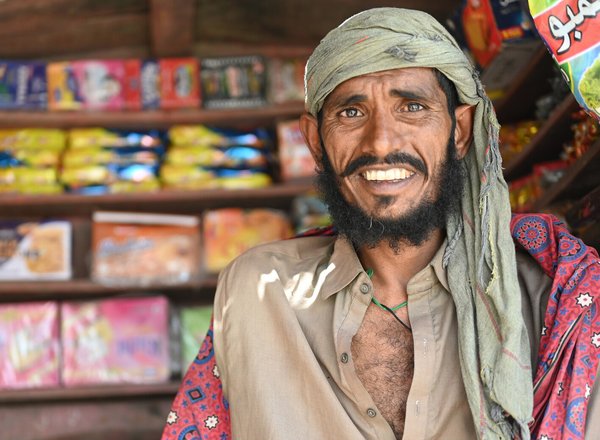We can unravel the web of climate injustice, together.
Climate Justice Appeal
The climate crisis is changing the world we live in; communities with the least power pay the highest price and are being pushed deeper into poverty – by loss of lives to flooding and drought, damage to homes by storms, higher bills when food and fuel is scarce. It’s a web of injustice that only makes the inequality worse.
But together, we can unravel the threads and find climate justice for everyone.
Start pulling the threads with a donation today.
Finding strength when it feels like the injustice won’t end
In Malawi, a major thread of injustice saw another community hit by another disaster – as climate emergencies strike more often, and with greater intensity.
When Cyclone Freddy arrived in March 2023, it left thousands of people homeless. Lasting over five weeks, it was the world’s longest-lasting cyclone, severely damaging homes, crops, roads, schools and hospitals. Ligineti and her grandson were left homeless.
65-year-old Ligineti Nayinayi waits to receive Cyclone Freddy relief items in Phalombe, southern Malawi. Thoko Chikondi/Oxfam.
For three days, it rained nonstop. I didn’t sleep the night my house crumbled.”
Ligineti, Malawi
With support from Oxfam, which partners with the district councils of Phalombe, Nsanje, and Chikwawa, Ligineti received cash support to buy essentials and relief items including a blanket and water bucket to collect safe, clean water. But the future is still uncertain.
65-year-old Ligineti Nayinayi holds relief items from Oxfam Malawi in Phalombe, Southern Malawi. Thoko Chikondi/Oxfam
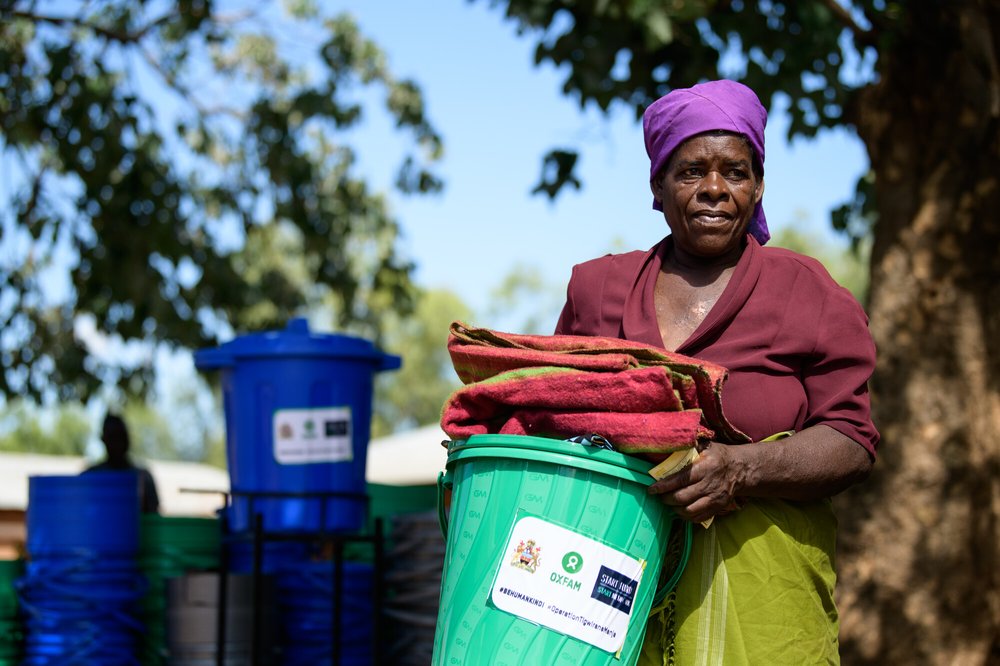
Ligineti holds relief items from Oxfam, including a bucket for storing water. Photo: Thoko Chikondi/Oxfam.
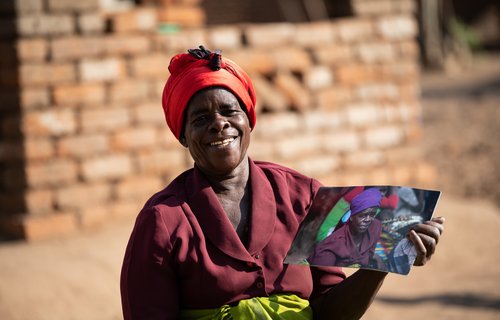
£25 Clean, safe water
£25 could help communities access clean, safe water in the aftermath of a climate disaster.
Rebuilding livelihoods in the face of devastation
Severe flooding, caused by extreme weather, saw communities in Pakistan affected by another thread in this web of injustice.
Pakistan, for example, is responsible for less than 1% of global carbon emissions, yet severe flooding in June 2022 hit the whole country with ferocity.
In Sindh Province, Pakistan, Ghulam started his small roadside shop business with a cash transfer. Photo: Tooba Niazi/Oxfam.
I lost one of my arms to an accident. It is difficult for a person with any disability to work. But I received the [cash transfer] and the moment I got it I knew I had to have a sustainable source of earning.”
Ghulam, Pakistan
Over two million homes were damaged or destroyed, livestock and livelihoods were washed away. Working with Strengthening Participatory Organisation, our local partner in Sanghar District, Ghulam (pictured above) received a cash transfer to help him open up a small roadside shop. With cash transfers, people can decide what they need most to support themselves and their families.
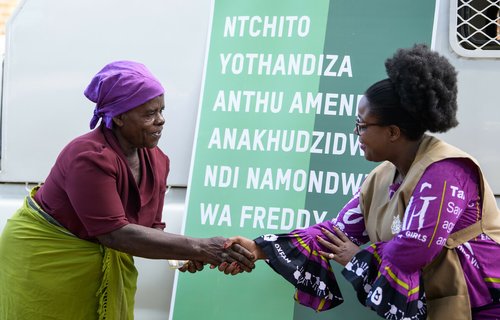
£50 Cash transfers
£50 could help provide cash transfers to communities in hardest hit areas to rebuild their lives.
Exposing climate inequality
In Cambodia, another thread of the climate crisis is how it disproportionately affects women and girls.
As much as we strive for gender equality, inequality still exists. It means women and girls are more likely to go hungry or miss out on education because they have to collect water.
But in the Stung Treng Province in Cambodia, Chhorvy, a Community Fishery Activist, is just one of the women fighting back.
Chhorvy notes down the days fish catch in a notebook in her house in Sesan, Cambodia. Photo: Patrick Moran/Oxfam.
When I invited people, there were less than ten people participating. Next time…at least 18 to 19 people joined. We're supporting women leaders to establish fishery networks adapting to climate change, coaching for fish catch monitoring and training on negotiation skills.”
Chhorvy, Cambodia
Working together with My Village (MVi), Oxfam's local partner, Chhorvy has joined a group learning how to observe and protect the rivers. For the sake of her community, their homes, livelihoods – and futures.
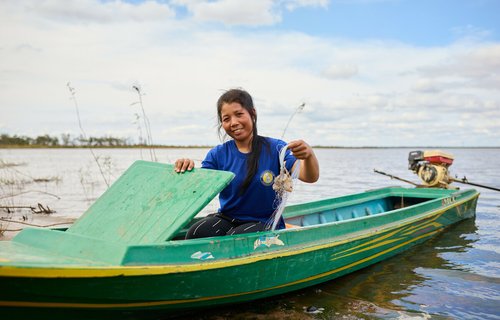
£80 Training and networks
£80 could help more women and girls adapt to the climate crisis through training and community networks.
In Sindh Province, Pakistan, Ghulam started his small roadside shop business with a cash transfer. Photo: Tooba Niazi/Oxfam.
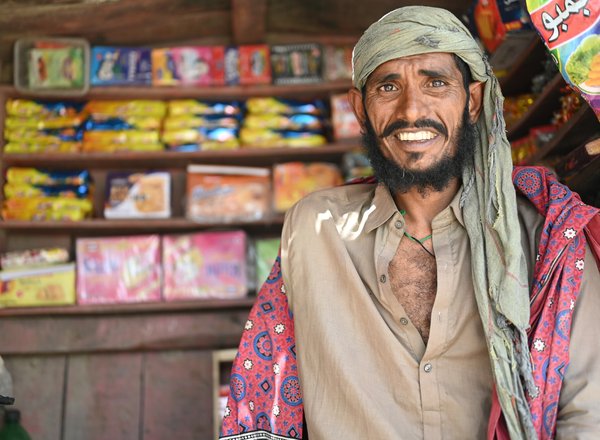
We can unravel the web of climate injustice, together.
